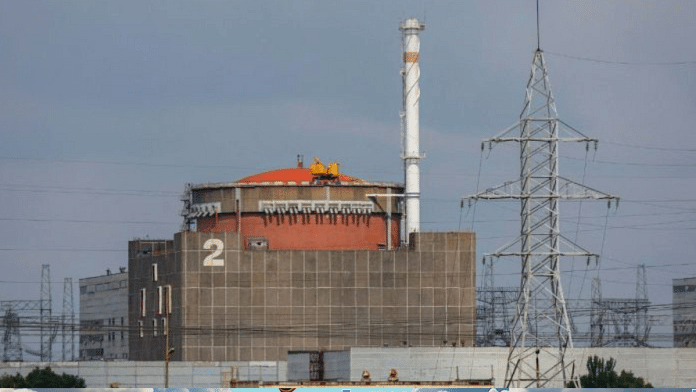- Nuclear energy is crucial to Saudi Arabia’s strategy to diversify its energy sources and address climate change.
- Transmutation is a safer form of nuclear energy production, enabled by advancements in particle physics; it reduces nuclear waste toxicity, improves safety and prevents nuclear proliferation.
- Saudi Arabia has the geopolitical position, financial resources and strategic motivation to lead global efforts in developing transmutation nuclear energy.
As the world has come to recognize the need for net-zero energy to minimize the effects of climate change, His Royal Highness Crown Prince Mohammed Bin Salman has committed Saudi Arabia to achieving net-zero greenhouse gas emissions by 2060 under the Saudi Green Initiative.
Saudi Arabia’s per capita fossil fuel consumption is the lowest among the Gulf states but still double that of Germany, representing a very significant financial opportunity cost in terms of revenue from exports. Moreover, a 2020 report from the Brookings Institute pointed out, “In the medium term, revenues from oil are expected to decline in the face of reductions in global demand starting around 2040, if not sooner.”
Yet alternative sources of energy, especially solar, are not capable of replacing the convenience of fossil fuels, especially for baseload energy.
Even in this sun-blessed region of the world, the United Arab Emirates (UAE) has demonstrated some of solar energy’s shortcomings, with nuclear scaling both faster and more dramatically. Nuclear energy represents the only carbon-free baseload energy available in this region without rivers, making it an indispensable component of any net-zero energy mix.

United Arab Emirates primary energy consumption: Nuclear vs solar.Image: Transmutex/ourworldindata.org
The promise of nuclear in the Gulf
A 2020 International Energy Agency study showed nuclear as the lowest-cost energy. Nuclear has had bad press over several spectacular project setbacks in the United States and Europe over the last few years.
However, based on international data, the agency noted in its ninth study on electricity generating cost that “nuclear thus remains the dispatchable low-carbon technology with the lowest expected costs in 2025.” It was stated that the only cost-comparable alternative would be large hydro reservoirs, which are highly dependent on countries’ natural water sources. Nuclear plants, it said, are more affordable than coal-fired plants.

Nuclear remains highly cost competitive as electricity production. Electricity produced from long-term nuclear operation (LTO) by lifetime extension, meaning unshackled from loan repayments, is the least-cost option for all power generation across the board.Image: Transmutex/International Energy Agency
So far, Saudi Arabia has been discouraged from developing local nuclear energy production due to Western geopolitical concerns, particularly proliferation prevention demands from the United States and the International Atomic Energy Agency. These constraints are a byproduct of the current uranium fuel cycle whose waste product is weaponizable plutonium.
Safer than fission and more practical than fusion, energy from transmutation relies on a two-stage process ideal for exploiting the overlooked common metal thorium as fuel.
First, the absorption of a neutron transmutes the thorium into the uranium 233 isotope (U-238 is the stable element found in nature), which then fissions, producing energy. In contrast, uranium-based nuclear energy (using U-235 or U-238) primarily involves a direct fission process without an intermediate transmutation step.
A safer and sustainable nuclear future
The transmutation energy process, relying on two steps, is enabled by the new combination of technologies emanating from particle physics experiments performed at CERN in the 1990s under the leadership of Professor Carlo Rubbia, winner of the Nobel Prize in Physics (1984).
This technology combines a particle accelerator to modulate the nuclear reaction with a liquid metal to cool the nuclear core. Giovanni Anelli, head of the CERN technology transfer division recently stated that “the concept is not new but recent technological advances bring it much closer to realization. It would be a real breakthrough in energy production.”
The advantages of this process meet the requirements for a sustainable nuclear future:
- Subcriticality due to the particle accelerator, which means the reaction can be shut down within two milliseconds (thousands of a second).
- Minimizing long-lived waste, which reduces the toxicity of the waste from 300,000 years to 300 years for the spent fuel.
- Passive safety for residual heat removal, no water as coolant and operation at atmospheric pressure.
- Proliferation-resistant electro-refining technology for spent fuel recycling.
- Sustainability with the breeding at scale of uranium 233, which would mix with thorium to establish a lower-cost, proliferation-proof fuel cycle with no long-lived waste (300 years).
Saudi Arabia’s opportunity to lead
Developing a civilian-focused transmutation nuclear energy would be a transformative opportunity for Saudi Arabia to lead in the energy of the future.
Other countries would join a Saudi Arabian-led effort to create this new source of energy, especially those with vast thorium reserves such as India, Turkey, Brazil or Norway, together with many developing nations seeking access to carbon-free nuclear energy without prolonged waste or proliferation risks.
The Kingdom’s unique geopolitical position and robust financial resources allow it to lead transmutation as a global and innovative clean energy process.
By embracing this new nuclear technology, Saudi Arabia would not only diversify its energy mix but also set a new standard in nuclear safety and sustainability that other countries could adopt and accelerate the energy transition.



